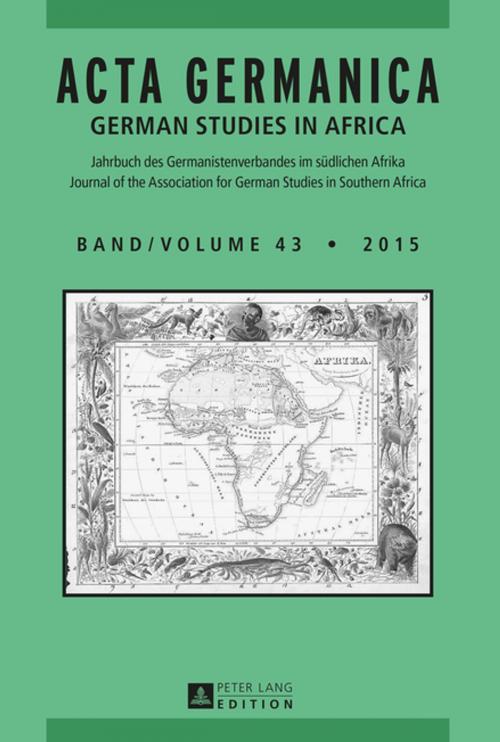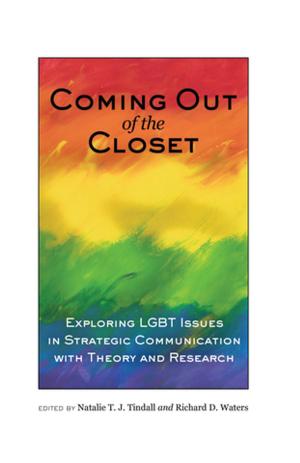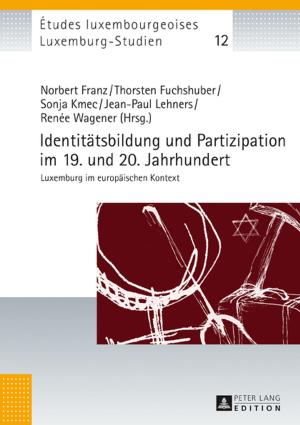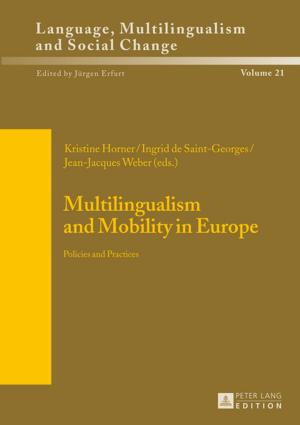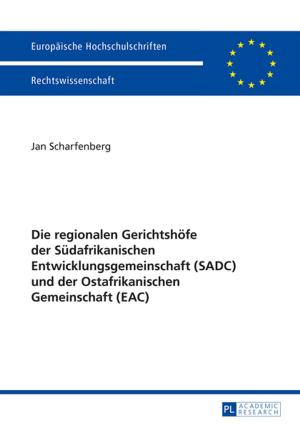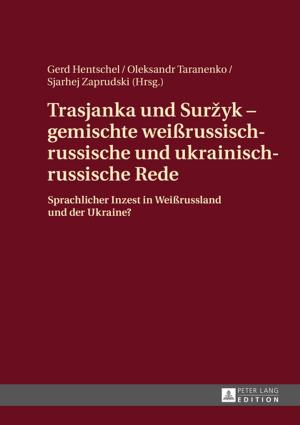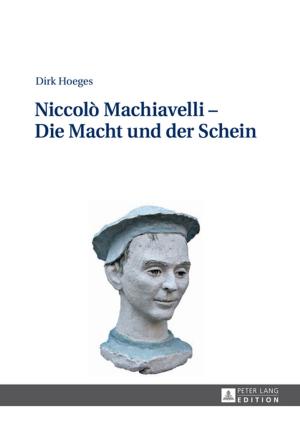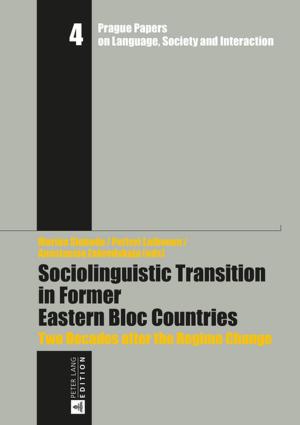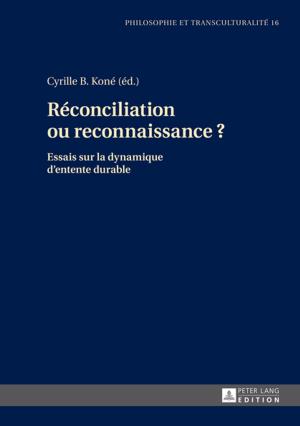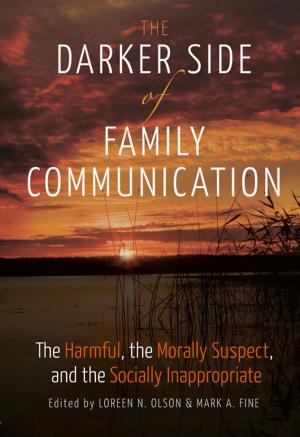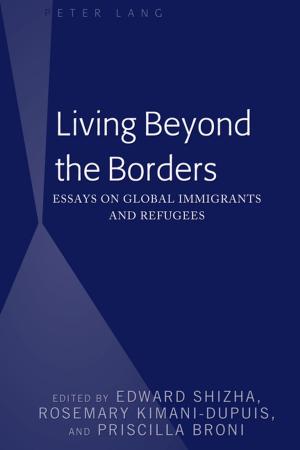Acta Germanica
German Studies in Africa
Fiction & Literature, Literary Theory & Criticism, European, German, Nonfiction, Social & Cultural Studies, Social Science, Anthropology, Reference & Language, Language Arts| Author: | ISBN: | 9783653952452 | |
| Publisher: | Peter Lang | Publication: | November 20, 2015 |
| Imprint: | Peter Lang GmbH, Internationaler Verlag der Wissenschaften | Language: | German |
| Author: | |
| ISBN: | 9783653952452 |
| Publisher: | Peter Lang |
| Publication: | November 20, 2015 |
| Imprint: | Peter Lang GmbH, Internationaler Verlag der Wissenschaften |
| Language: | German |
Der erste Teil «Afrika schreiben», zugleich Schwerpunktsetzung des Jahrbuchs, versammelt Beiträge über Afrikaverarbeitungen in der deutschen Literatur und im kulturellen Gedächtnis, die bezeugen, dass der afrikanische Kontinent nicht erst seit seiner Kolonisierung zu Imaginationen im europäischen Raum geführt, sondern auch heute noch Relevanz hat. Der zweite Teil «Sprache und Übersetzung» setzt sich mit Zusammenhängen von Sprache und Übersetzung sowie Fragen der Zugehörigkeit und Identität auseinander. Der dritte Teil enthält eine Reihe von allgemeinen Beiträgen zu literarischen Verarbeitungen des Ersten Weltkriegs, zu Aspekten kultureller und jüdischer Identität, aber auch zu Identitätskonstruktionen in neuerer deutscher Literatur und Gegenwartsliteratur, genauso wie zu Lesekonventionen und Gattungsfragen. Der dritte Teil schließt mit einem Beitrag zu Felicitas Hoppe ab. Zudem wird in einem Interview mit der Georg-Büchner-Preisträgerin von 2012, das im Anschluss zu lesen ist, ihr Südafrikabesuch im September 2014 gewürdigt.
The first part, entitled «Writing Africa», is devoted to the focus of this journal. It comprises contributions which analyse the writing of Africa in German literary texts and in cultural memory thereby demonstrating that the African continent has not only been subject to the European imagination since it was colonised, but still holds relevance there today. In the second part of this volume, namely «Language and Translation», contributions investigate the connection between language and translation and between belonging and identity. The third part contains a number of general articles, ranging from analyses of literary texts which were written about the First World War to aspects of cultural and Jewish identity as manifested in literary texts, from (de)constructions of identity in 20th century and contemporary German literature to examining conventions of reading and questions of genre. The third part concludes with an article on Felicitas Hoppe, winner of the Georg-Büchner-prize in 2012, followed by an interview with the author who visited South Africa in September 2014.
Der erste Teil «Afrika schreiben», zugleich Schwerpunktsetzung des Jahrbuchs, versammelt Beiträge über Afrikaverarbeitungen in der deutschen Literatur und im kulturellen Gedächtnis, die bezeugen, dass der afrikanische Kontinent nicht erst seit seiner Kolonisierung zu Imaginationen im europäischen Raum geführt, sondern auch heute noch Relevanz hat. Der zweite Teil «Sprache und Übersetzung» setzt sich mit Zusammenhängen von Sprache und Übersetzung sowie Fragen der Zugehörigkeit und Identität auseinander. Der dritte Teil enthält eine Reihe von allgemeinen Beiträgen zu literarischen Verarbeitungen des Ersten Weltkriegs, zu Aspekten kultureller und jüdischer Identität, aber auch zu Identitätskonstruktionen in neuerer deutscher Literatur und Gegenwartsliteratur, genauso wie zu Lesekonventionen und Gattungsfragen. Der dritte Teil schließt mit einem Beitrag zu Felicitas Hoppe ab. Zudem wird in einem Interview mit der Georg-Büchner-Preisträgerin von 2012, das im Anschluss zu lesen ist, ihr Südafrikabesuch im September 2014 gewürdigt.
The first part, entitled «Writing Africa», is devoted to the focus of this journal. It comprises contributions which analyse the writing of Africa in German literary texts and in cultural memory thereby demonstrating that the African continent has not only been subject to the European imagination since it was colonised, but still holds relevance there today. In the second part of this volume, namely «Language and Translation», contributions investigate the connection between language and translation and between belonging and identity. The third part contains a number of general articles, ranging from analyses of literary texts which were written about the First World War to aspects of cultural and Jewish identity as manifested in literary texts, from (de)constructions of identity in 20th century and contemporary German literature to examining conventions of reading and questions of genre. The third part concludes with an article on Felicitas Hoppe, winner of the Georg-Büchner-prize in 2012, followed by an interview with the author who visited South Africa in September 2014.
